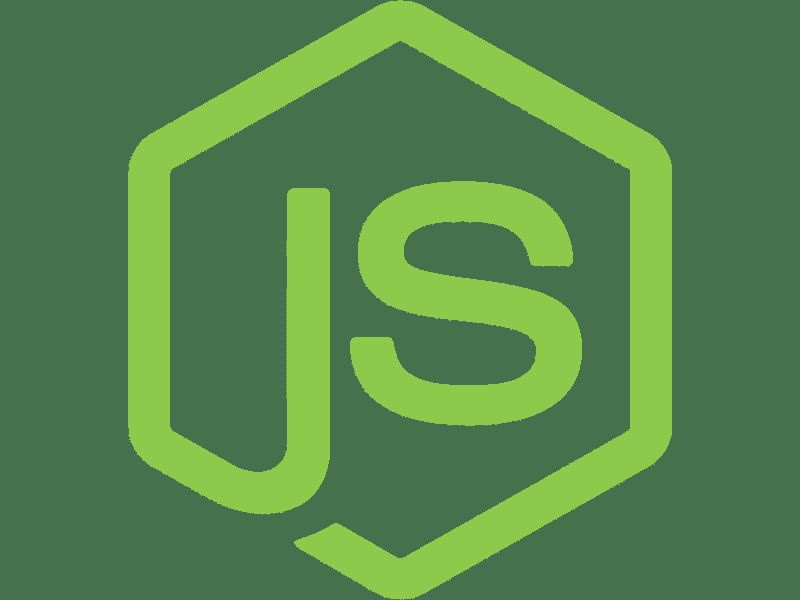
Node.js is an open source server framework that is completely free and uses thousands of developers around the world. Allows you to run JavaScript on the Node.js server. Node.js is a very powerful JavaScript framework/platform on Google Chrome's JavaScript V8 engine. It is used to develop I / O intensive web applications such as video streaming sites, single-page applications, and other web applications. Cyberoid (is Training Division of Nestsoft Technologies) introduced Node.js Training in Kochi and is currently the leading training center for the course.
The confusion of most students completing engineering in IT is how to choose the right career. Nestsoft Technologies helped me identify the right career focus based on my true tastes and skills and I chose Seo / Digital Marketing. Training is a good exposure for freshers to become experts. Thanks to Nestsoft Technologies and all its faculty ..

I did my Seo training at Nestoft Technologies. I got an understanding of Seo, and it could be a good career for me to step into the IT industry. I know that it is not good for me to join any shopping complex training organization just to learn advanced technology, which is why I chose Nestsoft Technology. Thanks to Nestsoft Technology for all the support and concern.

The course I have just completed in Nestsoft Technology has been an amazing journey. The information and knowledge I have gained is valuable. This has really helped me to continue my career in digital marketing.

I completed my PhP training under Jilo sir in Nestsoft Technologies. He is brilliant at the teaching level and he is a good motivational person. I finally got a good job, and I am completely grateful to that organization and Jilo sir. They also offer good placements.
I am happy with my decision to join Nesoft Technologies for my training. The environment there gave the impression of being in an IT company, not of a training institute. It is not possible to get a real administration knowledge from a training organization, but for this you need to address real issues and solve it in real time. Thank you all for your help .. !!!!

I am happy with my decision to join Nesoft Technologies for my training. The environment there gave the impression of being in an IT company, not of a training institute. It is not possible to get a real administration knowledge from a training organization, but for this you need to address real issues and solve it in real time. Thank you all for your help .. !!!

The manner of their coaching is awesome. i'm totally happy with the coaching. I got a chance to create my career in graphics designing. My faculty has taught me very well.

Nestsoft Technologies is a smart place to start. I was trained here and later Worked here full time. Currently, I, work abroad as a web Developer and conjointly the experience I gained from Nestsoft helped me a lot in achieving this position and every achievement in life.

I would like to thank the team of Nestsoft Technology, Cochin for all the great help and support you have given me, which helped me to get my job.

I am happy with my decision to join Nesoft Technologies for my training. The environment there gave the impression of being in an IT company, not of a training institute. It is not possible to get a real administration knowledge from a training organization, but for this you need to address real issues and solve it in real time. Thank you all for your help .. !!!!

I am very relieved at the experience of learning at Nestsoft Technologies, which has helped me to bring my skills up and give me a better path, and I am very satisfied with the faculty that lead me to complete the course. Thanks to Nestoft Technologies for preparing me for the road to success.

Great place to learn about upcoming technologies,I learned a lot about digital marketing from Nestsoft Technologies.
I did my SEO / Digital Marketing training at Nestoft Technologies. I got an understanding of digital marketing, and it could be a good career for me to step into the IT industry. I know that it is not good for me to join any shopping complex training organization just to learn advanced technology, which is why I chose Nestsoft Technology. Thanks to Nestsoft Technology for all the support and concern.

I am happy with my decision to join Nesoft Technologies for my training. The environment there gave the impression of being in an IT company, not of a training institute. It is not possible to get a real administration knowledge from a training organization, but for this you need to address real issues and solve it in real time. Thank you all for your help .. !!!!

I am very happy that I have chosen Nestsoft Technologies for my seo/digital markwting training.It is a good experience to feel like being in an IT company while getting training. Thanks to Nestsoft Technologies and all its faculties for all the efforts.

I am very proud that I am from Nestsoft Technologies. I trained in Seo training under the guidance of Jilo Sir. His suggestions prompted me to get a job. Thank you Jilo Sir.

Hi this is Muhammad. the faculties at Nestsoft is incredibly co-operative, They were responding to doubts terribly} very effective way. i am happy with the trainers and with their training. In future, i'll proudly suggest my friends. I thank trainers for providing me the best coaching in Asp.net.

There are many institutes that are trained in Seo , but Nestsoft Technology is different as they and provide a professional environment. This experience enabled me to work at an experience level, get a position as a Seo and successfully launch my career.

I did my PHP training at Nestsoft Technologies. The best faculty and the most enjoyable factor you can achieve is the minute attention paid to each subject. Really worth the money and time spent. I will refer everyone to Nestsoft Technologies for excellence training.

It was a great experience to be with Nestsoft Technology. Training has greatly helped me improve my knowledge. Conducting mock interviews helps me cross my heart, which helps improve my confidence. Now I feel that being in the world of programming is professional.

Myself Chithra Soman, I studied web designing course at Nestsoft Technologies. I even have extremely appreciated their coaching ways, they follow the job oriented program. classes taken by industry experts have years of experience in real-time projects. They provided excellent placement support than different institutes. thanks for an incredible expertise.

The confusion of most students completing engineering in IT is how to choose the right career. Nestsoft Technologies helped me identify the right career focus based on my true tastes and skills and I chose Seo / Digital Marketing. Training is a good exposure for freshers to become experts. Thanks to Nestsoft Technologies and all its faculty ..

Hii.My self Siddiq P.A, I have done Seo/Digital Marketing Training in Nestsoft Technologies. it absolutely was an awesome expertise for me. because my trainer gave full support for me and that they gave the explanation for all my doubts patiently. i would like to thank my trainer and also thanks Nestsoft Technologies.

Hi, this is Rahul V.J. I learned java coaching from Nestsoft. And Nestsoft Technologies offered me to get placed. Trainers are in very friendly manner. so i need to thank Nestsoft Technologies.

I am very happy that I have chosen Nestsoft Technologies for my PHP training. It is a good experience to feel like being in an IT company while getting training. Thanks to Nestsoft Technologies and all its faculties for all the efforts.

Studying with Nestsoft Technology is valuable and increases my knowledge in digital marketing and SEO. Nestsoft Technology offers its students a blend of theory and practical experience. The quality of training is exceptional.

I am very happy that I have chosen Nestsoft Technologies for my digital marketing training. The training is very good exposure for freshers to become skilled. The trainers are also well-experienced working professionals of Nestsoft Technologies, which is the highlight of the training.

I did seo training here. One of the best training institutes in Kochi for freshers and experienced associates. They provide classroom training and online training from highly experienced faculty.

The confusion of most students completing engineering in IT is how to choose the right career. Nestsoft Technologies helped me identify the right career focus based on my true tastes and skills and I chose Seo / Digital Marketing. Training is a good exposure for freshers to become experts. Thanks to Nestsoft Technologies and all its faculty .

Seo / Digital Marketing is an ideal platform for freshers with many jobs. So, I decided to study this and Nestoft Technology offered practical-based training on this SEO / Digital Marketing and Project Exposure. The training experience was very different and unique from any training organization. Thanks to Nestsoft Technology for all the support and concern.
